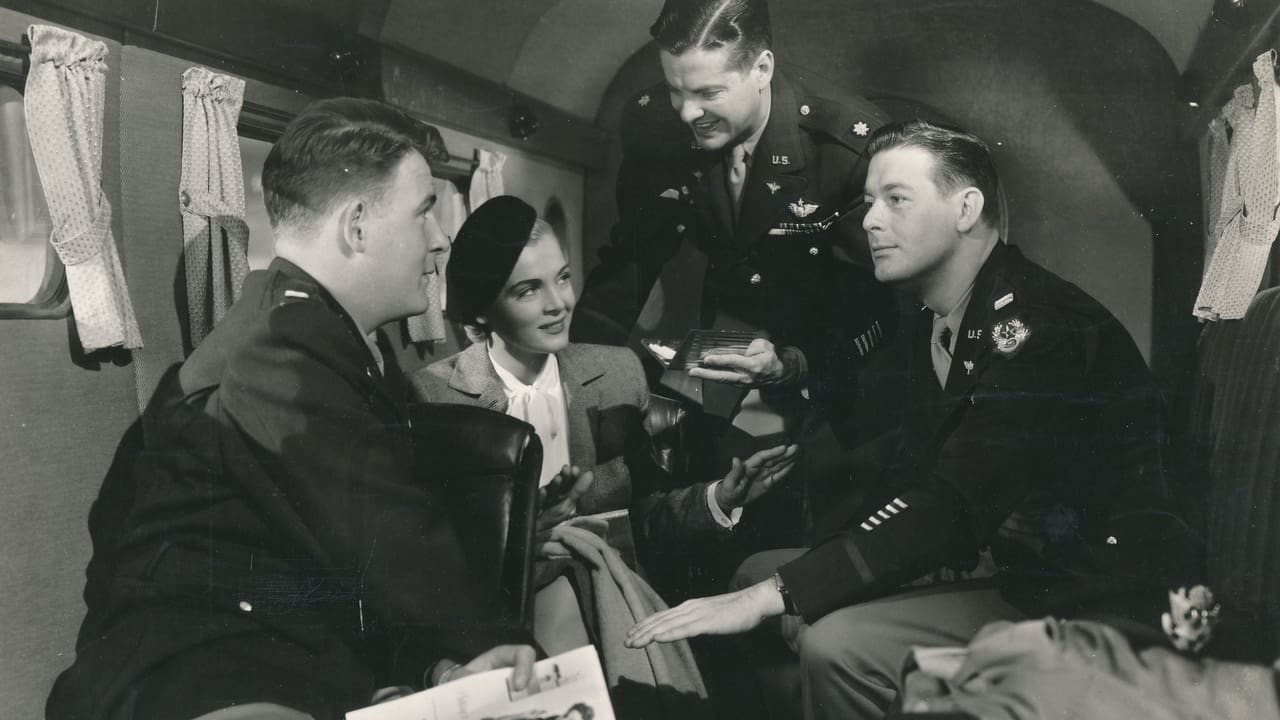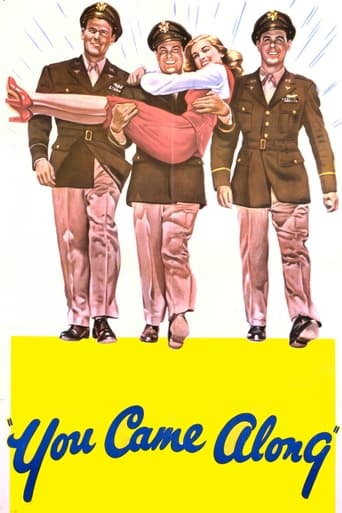

Am I Missing Something?
... View MoreWhat a freaking movie. So many twists and turns. Absolutely intense from start to finish.
... View MoreIt's entirely possible that sending the audience out feeling lousy was intentional
... View MoreAmazing worth wacthing. So good. Biased but well made with many good points.
... View MoreA Hal B. Wallis Production. Copyright 4 July 1945 by Hal Wallis Productions, Inc. Released through Paramount Pictures. New York opening at the Paramount: 4 July 1945. U.S. release: 14 September 1945. U.K. release: 22 October 1945. Australian release: 18 April 1946. 11 reels. 9,390 feet. 104 minutes.SYNOPSIS: Second-billed as Ivy Hotchkiss, Lizabeth was pitched in the advertisements as "Here's to Lizabeth Scott. Beautiful... blonde... aloof... alluring." And she had three acceptable leading men to bounce off her range of dramatic expression in this prefabricated bit of love, bravery, and patriotism. She was the treasury department official assigned to take three GIs (Bob Cummings, Don DeFore, and Charles Drake) on a war bond tour. Naturally, she and Cummings fall in love and marry. However...NOTES: Film debut of Lizabeth Scott.COMMENT: A ridiculous wartime escapist romantic melodrama, with boy scout pilots on a bond-selling tour falling for their chic blonde guide. Noble fellows these, whose strongest language is "Hubba-hubba!", true descendants of the Three Musketeers. Hard to believe that this tripe was boiled up by none other than Ayn The Fountainhead Rand. Even more difficult to credit that John Farrow had a hand in its direction. True, there are a few of his customary long takes, but mostly Farrow's handling comes across as boringly routine. His biggest black mark though is that he's been able to do nothing with that ebullient ham, Robert Cummings, who alas gives a truly lousy performance in what is the key role. Aside from a valiant attempt by newcomer Lizabeth Scott to dispense a bit of genuine charm to counterbalance Cummings' outlandish artificiality, the rest of the players seem cowed and overawed. Despite the sterling efforts of the photographer, the composer (who has contributed a witty and melodious score), and the art directors, all making the most of an undeniably handsome budget, the general atmosphere of this picture can be expressed in one word: Cloying.
... View MoreThanks a lot to the other reviewers so far..I enjoyed most of them and the first three reviewers got it pretty well for me! Yes it's quirky and different but I agree with one reviewer that Ayn Rand's positive and life-affirming views animate the film. For me it says SO much about society trying to build up again after the War and so much about hope (and hope in the face of loss) The acting really leaps in quality when the two leads face their decision whether to marry or not. I think it particularly moving that a film about war is 100% spent on domestic soil, and deals with the emotions of people who still live, meet, love and plan for the future. I feel that in the film makers' minds were: what will the audience be thinking and feeling? They have just been through 4 years of loss and hope, fear, tears, turmoil. The stand-out scenes are in the chapel for Ivy's sister's wedding, the church after they are married and of course the departure. Also in the nightclub, when the audience watches the band and Helen Forrest singing. It is the audience we are invited to observe, and perhaps the main theme of all is - handkerchiefs at the ready - love conquers all. There were some truly great films about adjustment to life after the war; this is one of them.
... View MoreIt is amazing how this film starts and how it ends. The very first scenes shows us one silly comedy about three Air Force pilots and one beautiful blonde PR (Scott). But the script makes an U turn and what we see is a very adult and realistic romance. The leading couple - Robert Cummings and Lizabeth Scott - are superb in their roles. And there is little trace of war propaganda, very subtle and always working to move the story. This is a film that could be so vain but manage to explore some deep meanings in romance and life itself. A nice piece of work from screenwriters Ayn Rand and Robert Smith, and director John Farrow. The ending is really touching.
... View MoreThis film is a curious, very memorable and touching romance. The vast majority of the narrative line takes place during a bond-rally tour headed by Ivy Hotchkiss, played by Lizbeth Scott, and Robert Collins, played with intelligence by Bob Cummings. The bond-selling tour becomes a voyage of discovery as well as revelation as Cummings and his two partners, beautifully played by Don Defore and Charles Drake, try to keep Scott from finding out the secret Collins is hiding; at the same time, Scott falls in love with the mysterious fun-loving and irresponsible trio, especially their leader. The film is well-directed in B/W, with very good sets, lighting, costumes and lively camera-work; but the real star is Ayn Rand's scintillating and well-crafted script that keeps "sense-of-life as a positive" foremost even as we begin to wonder at Collin's reasons for keeping all light, uninvolved and gay. The supporting cast consists of old Hollywood professionals from Franklin Pangborn and Rhys Williams to Julie Bishop and Jim Bannon. This was a deservedly popular film, a TRop TRen grossing film during WWII, with its story about the need for hope made just at the end of the conflict.; Once again, Rand's uncanny ability to use honesty and clear definitions here others would use vague ideas turns a routine sort of comedy into an idea-level satire--a triumph of an indomitable man's spirit over adversity. This is a splendid piece of film-making, and one of the most atmospheric of homefront war films, with a lovely main theme and arresting dialogue. A love story for the ages.
... View More